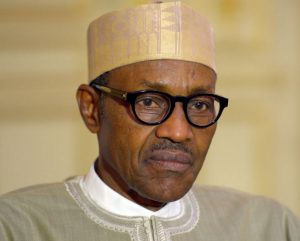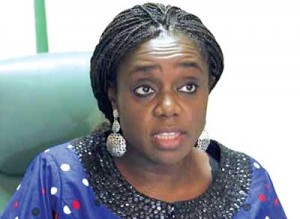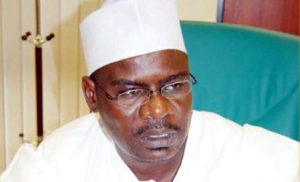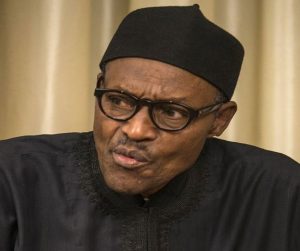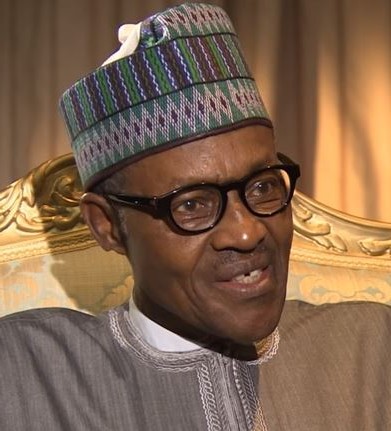
Tribune / Nigeria: For the first time, governance may shut down unless either President Muhammadu Buhari or the National Assembly blinks early enough over the 2016 budget.
Sources in the polity had noted that this would be the first time such a development would happen, as the Constitution only gives the executive power to spend 50 per cent of the previous year’s budget for six months in the absence of a new budget.
The development came upon the discovery of another alleged padding of the budget of Ministry of Agriculture to the tune of N12.6 billion.
It was gathered that while the lawmakers reduced the ministry’s N40.918 billion budget proposal to N31.618 billion, they also injected fresh 386 projects worth N12.6 billion. It was not clear whether all the said projects were constituency projects.
The N6.07 trillion budget passed on March 23 had been a source of squabble between the executive and the legislature, with the executive alleging fresh padding and removal of some key projects.
The executive had alleged many of its flagship projects were either removed or distorted by legislators while working on the budget bill.
A Presidency source, however, insisted that President Buhari would not assent the budget as passed.
Though the House of Representatives had made its intention known to review the budget if it received complaints from the executive, the Senate said last week, that it was only awaiting a supplementary budget in case the executive had objections to the passed budget.
That could be a source of potential government shut down, as the government cannot spend any money legally after June.
A source close to the Presidential Villa said: “Buhari will not sign that Appropriation Bill into law and he has already made his intention known to the assemblymen.
“He has been consulting widely with both legal and political associates on how to deal with the situation. A former leader even met with him shortly before he left for China.”
“The president has so far relied on the constitutional provision, which allows him to spend up to 50 per cent of the previous year’s budget, but that could snap if the crisis is not resolved by end of June.
“And if the worst should happen and the National Assembly refuses to rework the budget proposal, the government will rather shut down than for him to allow the old forces of retrogression to have their way and humiliate him.”
It was learnt that at the emergency Federal Executive Council (FEC) meeting held to review the budget as passed by the National Assembly, there was a consensus to reject the document and return it to the lawmakers.
Sources in the executive said the flagship projects by which Buhari intended to convince Nigerians that his administration meant well, were removed or distorted.
A contentious one remains the new standard gauge rail lines between Lagos and Calabar.
“Imagine, Britain introduced electric train in 1860 and Nigerians are still being ferried in old dilapidated locomotives that take three days and most times more, to travel between Lagos and Kano,” a source said, adding that some of the other projects included recruitment of 500,000 teachers, construction of 105 new health centres across the 36 states, construction of 2000 kilometres of roads and that most of these had been distorted by the legislators.
Sources in the executive also said the decision to resist the legislature on the budget was taken, pursuant to the advice given by the legal minds within the administration who were of the view that the legislature did not have the right to increase budgetary votes.
They also claimed that the legislature could, however, reduce proposals if they believed that there was price inflation or if the projects were frivolous.
A source said: “But how can they inject new projects or raise the figures? Do they have the capacity to commission consultants to design projects? And if projects have not been designed by the executive, how can they vote money for it?
“Actually, President Buhari feels that there are some elements within and outside the National Assembly determined to distort his lofty intentions to emancipate Nigerians.”
Such arguments had, however, remained recurrent in the budget circles for many years now.
An attempt to settle the rift once and for all was to be taken by the administration of the late President Umaru Yar’Adua in 2008, when he threatened to drag the lawmakers to the Supreme Court, but he could not pull it through because of the fear of total shut down of government.
President Buhari said in Abuja on Sunday night that he would only sign the budget that will do good to a maximum number of Nigerians.
Speaking through his spokesman, Mr Femi Adesina, on a Channels Television programme, Politics Today, he said when asked he would sign the 2016 budget into law, that he would not wish to sign the budget but to critically look into it sector by sector.
“For example, the budget was reduced by N17bn, the president would like to know why it was reduced and where the amount reduced was taken to.
“The president will only sign a document that the executive agrees to,” he said.
Also on Sunday, it emerged that the budget of the Ministry of Agriculture had run into another hitch, following the discovery of alleged paddings by the lawmakers.
A source close to the ministry said projects worth N12.6 billion were injected into the budget proposals.
The source listed some of the projects to include Federal College of Produce Inspection and Stored Products, Kano N550.6 million; Agricultural Research and Management Institute, Ilorin, N225 million; National Centre for Agricultural Mechanisation, Ilorin, N422.4 million; National Cereal Research Institute, Badeggi, N257.5 million; National Veterinary Research Institute, Vom, N35 million; National Root Crops Research Institute, Umudike, N484 million; National Institute for Oil Palm Research, Benin, N177.8 million; Institute of Agricultural Research, Zaria, N243.3 million; National Animal Product Research Institute, Zaria, N345.5 million; National Horticulture Research Institute, Ibadan, N62 million;Cocoa Research Institute, Ibadan, N90 million; Institute of Agricultural Research and Training, Ibadan, N18 million; Rubber Research Institute, Benin, N70 million and the National Institute for Fresh Water Fish, New Bussa, Niger State N205 million.
Others were National Agricultural Extension and Research Liaison Services, Zaria, N60 million; Veterinary Council of Nigeria N26.2 million; Federal College of Animal Health and Production, Ibadan, N68.6 million; Federal College of Agriculture, Akure, N342 million; Federal College of Agriculture, Moor Plantation, Ibadan, N154.1 million; Federal College of Agriculture, Ishiagu, N316 million; Federal College of Fresh Water Fisheries Technology, New Bussa, N92 million; Federal College of Animal Health and Production, Vomiting N83 million; College of Veterinary and Medical Laboratory, Vomiting N50 million; Federal College of Fresh Water Fisheries, Baggage N77.8 million; Federal College of Fisheries and Marine Technology, Lagos N254 million; Federal Cooperative College, Ibadan N40 million; Federal Cooperative College, Kaduna. N270.2 million; Federal Cooperative College, Oji River, N7 million; Federal College of Land Resources Technology, Owerri, N147 million; Federal College of Land Resources, Kuru, Jos, N35 million; Federal College of Horticulture, Dadin Kowa, Gombe N455.8 million; Nigerian Stored Product Research, Ilorin, N955.1 million; National Agriculture Seeds Council N70 million; Nigerian Agricultural Quarantine Services, N50 million; Agricultural Research Council of Nigeria, N150 million; Lake Chad Research Institute, Maiduguri, N185 million; National Institute of Oceanography and Marine Research, N185 million.
A source close to the appropriation process said it was good that the House had decided to review the budget.
The source said: “We are happy that the Speaker hinted that the issue of the budget will be revisited this week, but what some of us want is the understanding of Nigerians in this matter.
“The issue of this controversial budget has to be carefully done this time round, because some persons who think they were smarter had already led the entire parliament into collision, with the executive and indeed, Nigerians.
“They have done this by inserting projects without the knowledge of others, either in the appropriation or relevant sectoral committees and presenting same as the collective decision of the House or the entire parliament.
“The implication is that if the president did not insist on details, most National Assembly members would not have had the opportunity to know what went behind them.”
Another source raised the issue of inbalance in the allocations to the Ministry of Health, adding that out of the N7.2 billion infused into the agencies under the ministry, only a paltry sum of N2.3 billion was allocated to the South, while N4.3 billion was allocated to the North.
The most annoying thing is in those areas where those who inserted the projects have interests, the cost of projects is nothing less than N100 million.
“That is how to know who had interest in where and what, because from the look of things, how does it make sense that Federal Cooperative College, Ibadan, will get N40 million, that of Oji River will be given N7 million and that of Kaduna got N270 million,” he alleged.
It was also alleged that some projects unconnected with the agriculture sector were included in the details of the ministry’s budget.
They included erosion control in Federal University, Kashere, Kwadon and Garin Alhaji, at the cost of N200 million, N100 million and N45 million, respectively.
Others were provision of 58 boreholes for 29 rural communities and an additional 50 rural communities in the sum of N175 million and N150.4 million, respectively, whereas the communities were not named.
Out of the N90 million allocated to the Cocoa Research Institute in Ibadan, various sums were allotted to different sub-heads, including the provision of rubber seeds and seedling in Igbotako, Okitipupa (N5million), training and empowerment of youths in poultry farming in Oluyole, Ibadan (N20 million) and provision of cassava processing plant in Etsako East Local Government Area of Edo State (N10 million).
Out of the items included in the budget for the Rubber Research Institute, Benin, two were equally outside the focus of rubber. These were training and empowerment of youth and women in fish farming in Ndokwa, Delta State, as well as fabrication, installation of cassava processing machines in Owan West Local Government Area of Edo State, at N10 million and N20 million, respectively.
Also, the sum of N1 billion was allocated to two projects in Kwara South, the senatorial district of the Senate President, Dr Bukola Saraki. They were for the construction of rural roads for the sum of N700 million, as well as empowerment of women and youth in agricultural products for another sum of N300 million.

